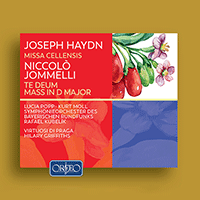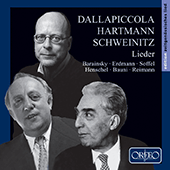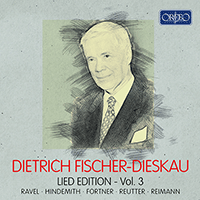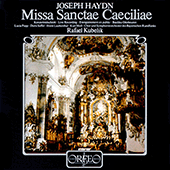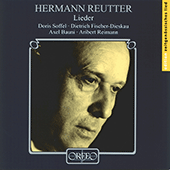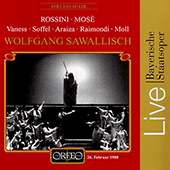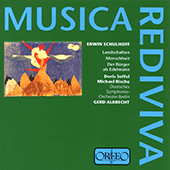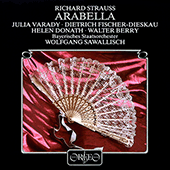Doris Soffel
German mezzo-soprano Doris Soffel first studied violin at the Munich Academy of Music, then singing with the legendary Wagner/Strauss-soprano Marianne Schech. During her studies already, she made her debut at the Bayreuth Youth Festival, singing the leading role in Wagner´s Liebesverbot. Wolfgang Windgassen immediately engaged her at the Stuttgart opera ensemble.During the following years she could build up a broad repertoire, including protagonist roles like Dorabella (Cosi fan tutte), Cenerentola, Carmen, Eboli (Don Carlo) and Octavian (Der Rosenkavalier).
With her sensational success at Covent Garden as Sesto in Mozart´s Titus 1983 and as Orlofsky in Fledermaus (conductor Domingo) 1984, her world career was launched. Sawallisch gave her a lasting guest contract at the Bavarian State Opera, Munich. Since then she has made regular appearances in all big and important opera houses and concert halls worldwide.
In the 1980's Doris Soffel became the only German mezzo-soprano with an International career in coloratura roles (belcanto-operas like L´Italiana in Algeri and La Cenerentola by Rossini as well as Donizetti and Bellini operas). Her cooperation with Joan Sutherland and Richard Bonynge has been well documented (Norma and Lucrezia Borgia). In French repertoire she conquered the International audience not only with Carmen, but also with roles like Charlotte in Massenets Werther (with Alfredo Kraus) and Marguerite (Berlioz Damnation de Faust). Her exceptional musicality and vocal flexibility also led to cooperation with contemporary composers like Reimann, Henze and Penderecki. She had triumphant successes at world premieres, e.g. at the Munich Opera Festival in 1986 as Kassandra in Reimann's Troades.
With an extraordinary combination of passion, creativity and intelligence, demonstrated already in the Italian and French roles, Doris Soffel grew into one of the most significant Wagner- and Strauss singers of our time. Her early successes as Fricka (Rheingold and Walküre) with Solti in Bayreuth and her Waltraute (Götterdämmerung) with Mehta were confirmed later, at Carsen's Cologne-Ring, at Audi's Amsterdam Ring , at the Dresden and Berlin (Deutsche Oper) Ring and in 2010 at La Scala with Barenboim. Her Kundry (Parsifal) with Thielemann and her Ortrud (Lohengrin) with Luisi are legendary.
Doris Soffel's artistic curiosity and permanent seeking of new challenges has also brought her in recent years to the Slavic repertoire: With Marfa (Mussorgski's Khovanschina), Jezibaba (Dvoraks Rusalka) and Kabanicha (Janaceks Katia Kabanova) the artist painted extraordinary and touching role portraits.
Today, with her strong vocal expressive power, with her charisma and with stunning acting performances, she celebrates one triumph after the other in strong Strauss roles like die Amme in Frau ohne Schatten (debut in Los Angeles 2004), Herodias (Salome) and Klytämnestra (Elektra).
Doris Soffel has sung with legendary conductors such as von Karajan, Celebidache, Solti, Giulini, Sawallisch, Maazel, Mehta, Sinopoli, as well as Thielemann, Rattle, Jordan, Luisi, Nagano and Barenboim. Working from the beginning of her career with such significant stage directors as Rennert, Ponnelle, Friedrich and Kupfer had a great formative influence on her artistry and today she works with directors like Konwitschny, Carsen, Herheim, Wilson, Stölzl, Kosky, Loy and Tscherniakov.
Doris Soffel also has an impressive career as concert- and Lied-singer,main focus on Mahler, Brahms, Sibelius and Strauss. An extensive discography (more than 60 CDs) as well as many DVD productions testifies to the great versatility of the singer and to the beauty of her voice and she has a strong presence on Youtube. She is German “Kammersängerin” and in 2001 she was awarded with the Royal Swedish Northern Star Order for her important artistic contributions to Swedish music life.
© 2020 Doris Soffel / www.dorissoffel.com








